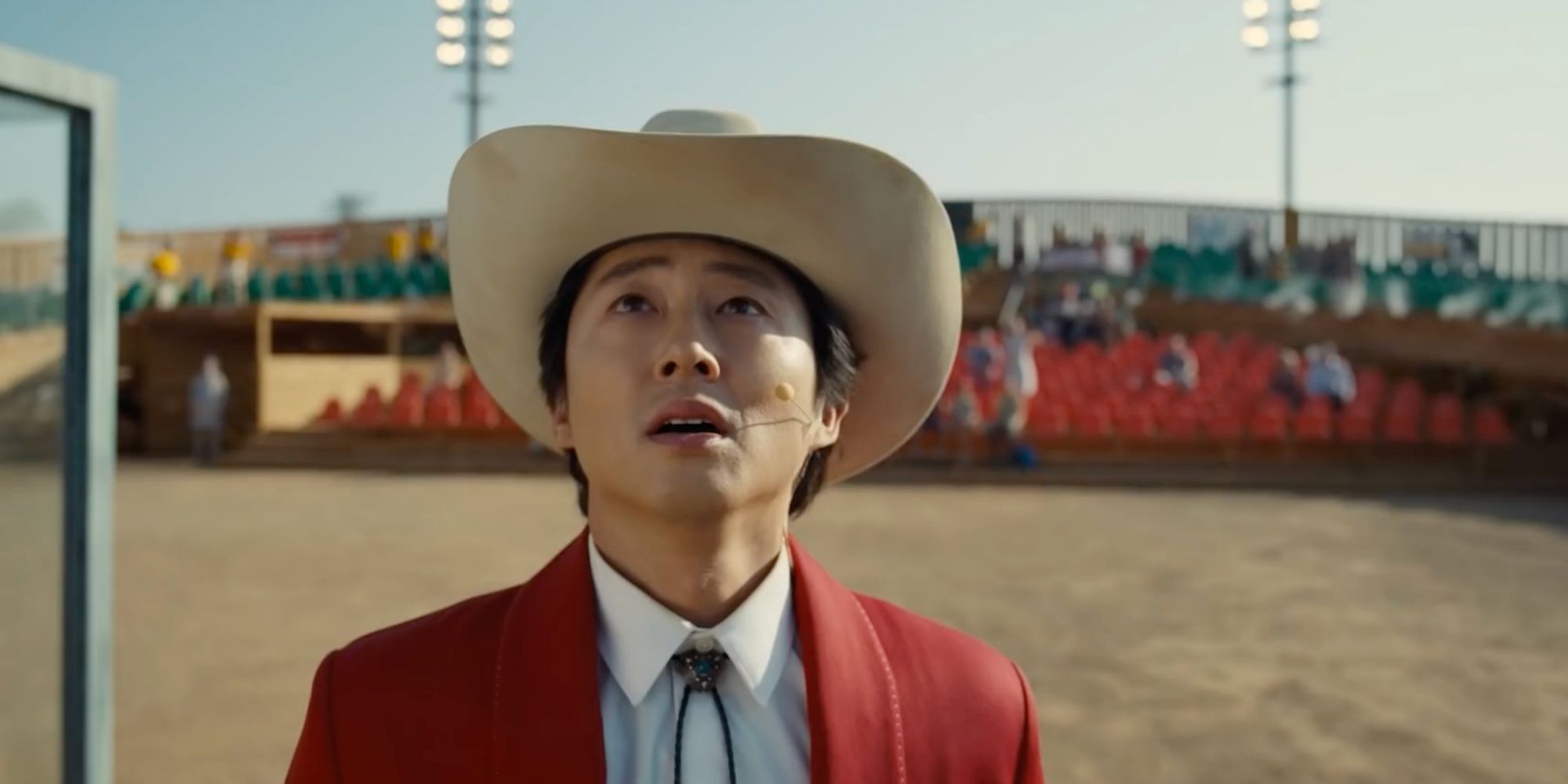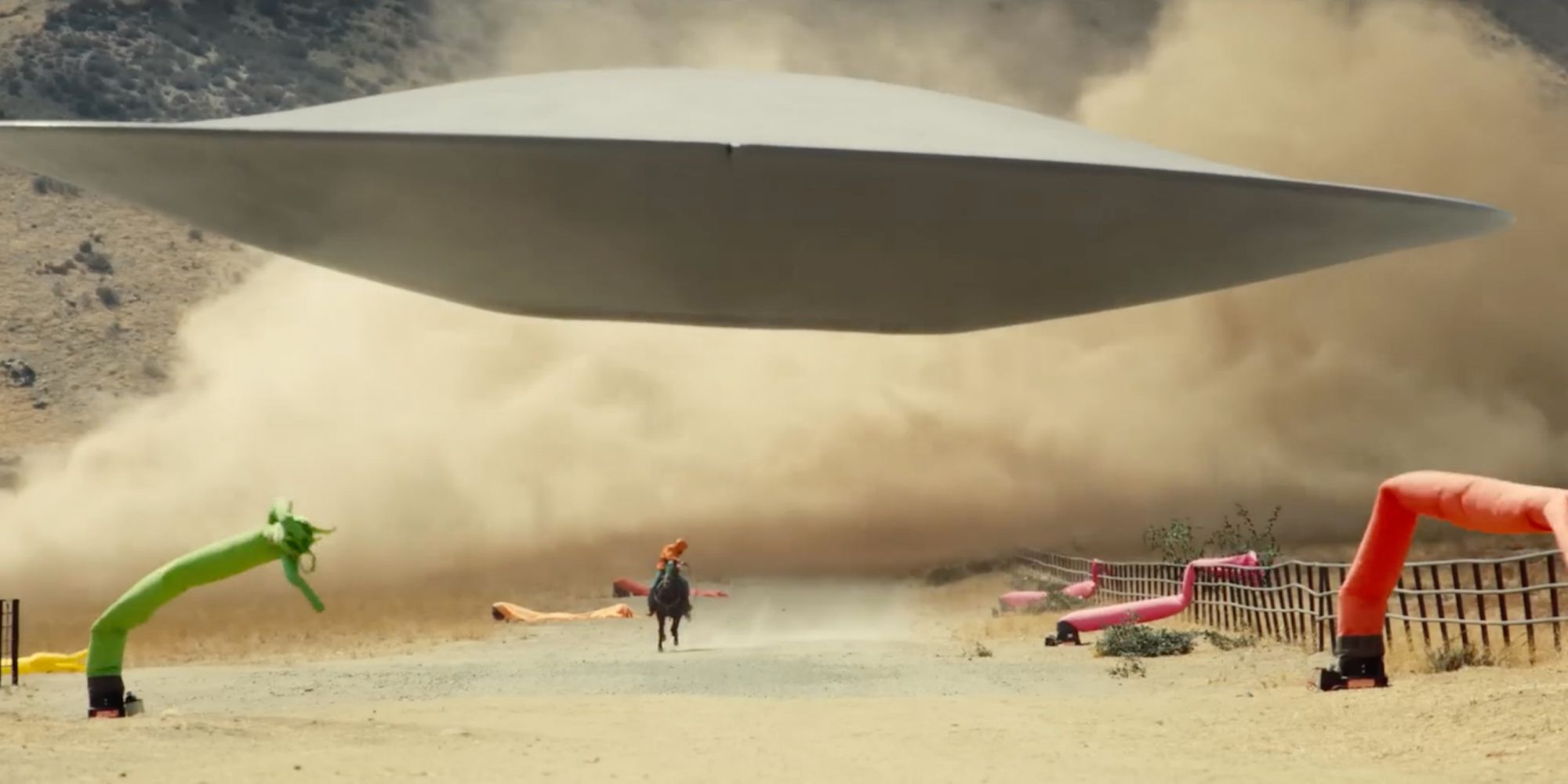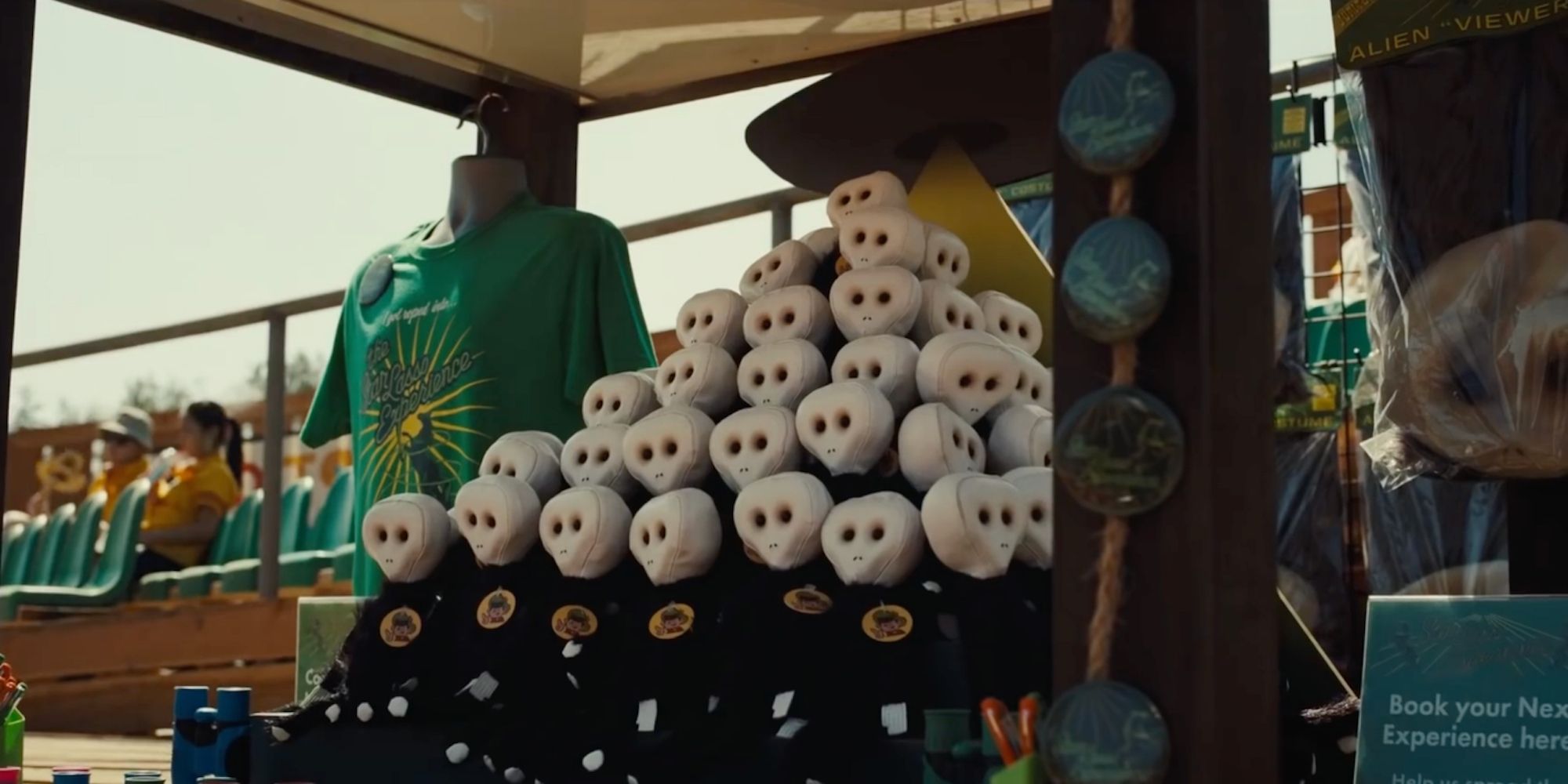This article contains major spoilers for Nope.Writer and director Jordan Peele has already made a name for himself as a masterful storyteller who blends the tropes and aesthetics of horror with complex, insightful themes that speak to real-world issues. His latest film, Nope, is no exception to this trend. However, determining exactly what the film is trying to say may be a mystery at first.
Peele’s previous films, Get Out and Us, have dealt explicitly with themes of racism and oppression. By contrast, the central idea behind Nope is a bit more abstract. However, when one looks at the film’s characters and their common experiences, some recurring ideas begin to emerge. Nope may seem like a bizarre story at first glance, but underneath the weirdness, its driving themes are more tangible than one might expect.
Animal Instincts
The opening scene of Nope is one that most viewers won’t be forgetting any time soon. The film begins with a shot of a TV set — completely destroyed by a chimpanzee dressed in human clothes. The chimp stands next to a motionless human body, covered in freshly spilled blood. He’s strangely serene, despite all the carnage he’s just wrought. And then, the ape looks directly at the camera, and the scene cuts to black. It’s completely surreal yet utterly chilling, and it stands out as one of the most memorable parts of the movie.
The next scene serves as the introduction of the film’s protagonist, OJ Haywood (Daniel Kaluuya). We first see OJ helping his father Otis (Keith David) on the family horse ranch, and as he does, the film’s first recurring motif emerges. Animals are prominent throughout the film — specifically, how animals are exploited by the entertainment industry. Another early scene features OJ bringing one of his horses, Lucky, to a commercial shoot, where he’s startled by a crew member and becomes aggressive. Right away, Nope makes a point of focusing on how poorly animals are treated in Hollywood.
Soon after, this theme is elaborated on even further by Ricky “Jupe” Park (Steven Yeun), theme park owner and former child star, who recalls his past as the star of the short-lived sitcom “Gordy’s Home.” As it turns out, the cryptic opening scene was a traumatic memory from Jupe’s childhood. After Gordy, the show’s titular chimpanzee, was frightened by a popped balloon, he went on a rampage and viciously attacked the cast and crew, sparing only Jupe before being shot. Between Lucky and Gordy, the point Nope is trying to make becomes even clearer: when animals are mistreated for the sake of entertainment, they tend to lash out in retaliation.
At first, this may seem like a strange and even random theme to explore in a film about the quest to catch a UFO. But eventually, it’s revealed that the UFO menacing the Haywood ranch isn’t an alien spacecraft, but rather a living creature in its own right. It isn’t a ship, but an animal — one that OJ dubs “Jean Jacket” after one of the ranch’s previous horses. And like Lucky and Gordy, Jean Jacket finds itself exploited for the sake of entertainment.
Something Spectacular
When most characters learn of Jean Jacket’s existence, their first instinct is to capitalize on its existence for their own ends. Both Jupe and OJ’s sister Emerald (Keke Palmer) want to use their UFO discovery as a ticket to fame and fortune. Meanwhile, the Haywoods’ unlikely allies Angel (Brandon Perea) and Holst (Michael Wincott) are enamored by the notion of capturing alien life on film. Even a TMZ reporter is killed trying to investigate the UFO rumors. Nearly everyone who learns of Jean Jacket sees it not as a living creature to be feared and respected, but as a spectacle to exploit. And as a result of this exploitation, Jean Jacket ends dozens of human lives.
The idea of spectacle is brought up in the first seconds of the film, which feature a Biblical quotation from Nahum 3:6 that reads:
"I will cast abominable filth upon you, make you vile and make you a spectacle."
Right away, Peele associates being a spectacle with suffering. Naturally, this association is felt most prominently in the theme of animal exploitation, but animals aren’t the only ones who become spectacles. Despite its grim nature, the Gordy incident became a nationwide sensation, even earning a Saturday Night Live sketch making light of the disaster. And despite his deep-rooted trauma over the event, Jupe is forced to laugh along with the world, even showing off his “Gordy’s Home” memorabilia to fans for money. Ultimately, however, Jupe learned the wrong lesson from Gordy, and he’s killed by Jean Jacket after continuing the cycle of exploitation.
And while themes of race are far less prominent in Nope compared to Peele’s previous work, they’re still present in the background. The Haywood family are the descendants of the Black jockey who starred in the very first motion picture — but while the film’s director achieved fame and glory, the Haywoods’ ancestor remained a footnote in film history. And so, despite being involved in the film industry since its genesis, the Haywood family struggles to make ends meet in the 21st century. Once again, the entertainment industry cares only for generating spectacle, paying no mind to the lives that are ruined along the way.
If there’s one point that Nope is trying to make, it’s that being viewed as a spectacle means existing solely for entertainment, not a living being with thoughts and feelings. Even Jean Jacket reflects this in its design, resembling a giant eye as it devours its victims. From the Haywoods and Jupe to Jean Jacket and Gordy, the film is filled with characters who struggle to assert their autonomy in the face of the cruel and uncaring entertainment industry. Many of them cause great suffering themselves in their desperation. From the greedy to the well-intentioned, those who seek fortune or glory at the expense of others tend to meet gruesome consequences.
Greater Than Fame
While the issues Nope concerns itself with are clearly identifiable, it doesn’t offer any simple solutions. However, there is one character who is never once taken in by the allure of spectacle. OJ isn’t driven by hunger for fame, but by a simple desire to protect his family’s ranch. He never once sees Jean Jacket as anything but a force to be treated with caution, and it’s ultimately his skill with animals that helps save the day. It’s quite telling that the film ends with Emerald finally getting her perfect shot of the UFO, only to completely ignore it when she sees that OJ is alive.
Underneath its sci-fi thriller exterior, Nope is a film all about the exploitative nature of spectacle. It shows how pursuing fame at the cost of others often backfires with disastrous consequences, and only by valuing life over glory can peace be found in the end. It’s a film with many layers of complexity and meaning, and though it may seem tricky to understand at first, Nope is a film that has plenty of important things to say.




.jpg)